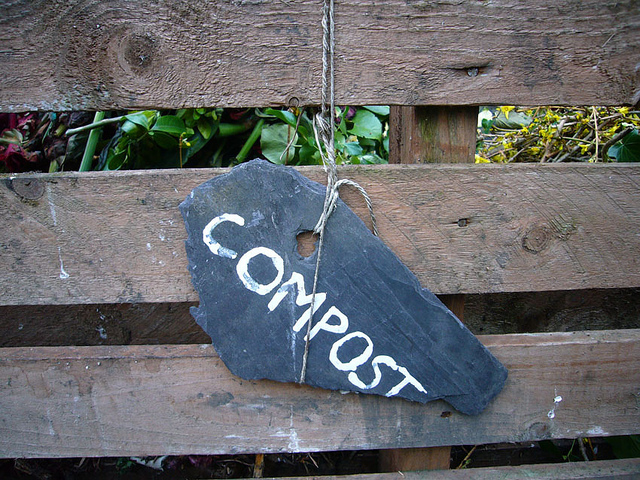
Food waste is a growing global problem. In 2011, in the U.S. alone, the EPA reported that we put 36 million tons of food waste in landfills to rot and pollute the air with methane.
But food waste isn’t just leftovers or spoiled food. Food waste occurs along every step of the way in getting food from the farm to the fork.
The NRDC reported in 2012 that over 40 percent of food produced in the United States was lost in the transition from farm to fork. The loss of edible food is devastating enough, but combined with the energy and resources that it takes to produce, process and transport food, the waste is creating environmental damage at an alarming rate.
Food raised and produced in the US uses over half the land and 80 percent of all freshwater consumption—and nearly half of that food is wasted and lost.
Rotten, wasted food is the single largest component of municipal solid waste and accounts for a large percentage of methane emissions. Even though the US is dealing with an obesity epidemic, one in six Americans lacks a stable and steady food supply.
Reducing food waste by 15 percent would be enough to feed more than 25 million people every year.
In order to reduce food waste at the farm and processing level, growers and businesses need to streamline their operations and consumers need to inform businesses and governing agencies of their concerns. Together, we need to work to establish goals for waste reduction.
In our own homes and daily lives we waste more food than we think do—forgotten leftovers, fruits and vegetables that spoil before we can eat them fill up our trash cans before we even know it. Our eating and shopping habits have a lot to do with the food waste we create in our homes. By taking small actions to reduce food waste you will save food, save money and reduce the negative environmental impacts of food waste.
Buy Less Food
Sometimes buying in bulk can be the way to go for staples like nuts, rice, pasta and grains—as long as you store these foods properly. But when you buy fresh foods that can spoil quickly, buy only what you will use and eat before your next shopping trip. Before shopping at the supermarket, check your pantry and refrigerator—how much food do you really need to get through the week?
Meal Plan
Write up a meal plan. Knowing what you are going to eat throughout the week will help you be a better shopper. Write a shopping list of the items and amounts that you need. Resist the urge to buy food that you want. Buy what you need.
Portion Control
Portioning your food not only keeps your weight in check, it also gets you in the habit of making the right amount of food for you and your family, which will have a direct impact on what you buy at the grocery.
Store Food Properly
Take note of expiration dates on pantry items and rotate new purchases so you use older items first. If you buy whole foods, prep them when you come home from the supermarket to make them easier to use. Having a bowl of chopped vegetables in the fridge or washed fruit on the counter makes it easier to eat them, or use them in recipes.
Eat the Ugly Foods
Our fascination with perfection doesn’t only affect the way we view our own appearance—it also effects the way we view the appearance of food. A lumpy, bumpy apple with a matte finish, a brown speckled banana, a stone fruit with a blemish are all perfectly edible foods. Even if you have to cut a small part of the food away, it doesn’t mean that you have to waste the food.
Food Preservation
If you have foods that are about to spoil, see if you can preserve them. Oftentimes fruits can be chopped up and frozen for use in smoothies or sauces. Meats and vegetables can be frozen and used as is, or in soups or stews. Grains, nuts and flours can be stored in the freezer, as can tofu, milk and some cheeses.
Eat Your Leftovers
Pack leftovers in containers and either freeze, use for on-the-go eating or eat for lunch the next day. If you don’t like leftovers, ramp up your portion control efforts to ensure you don’t make more food than you can eat.
Compost Food Scraps
Composting coffee grounds, egg shells, fruit and vegetable scraps can be done in small apartments (with a worm farm) or in the suburbs with a large backyard compost pile.
Implementing the suggestions above can take time. Even if you do all of those things, there will undoubtedly be a time or two when something doesn’t go the way you planned and you have to deal with throwing food away. In those situations do your best to compost the food if you can and then adjust your shopping or cooking to try to avoid the same thing from happening again.
Every scrap of food we keep out of the landfill benefits the environment.
Keep your staples, meals and snacks simple to ensure that you, your family and the planet stay healthy.
References:
Relephant Reads:
This Supermarket Runs on its own Food Waste
Waste to Energy: Corn Husks May Energize our Future
Author: Amanda Ashley
Assistant Editor: Hilda Carroll / Editor: Emily Bartran
Photo: Kirsty Hall/Flickr








Read 0 comments and reply